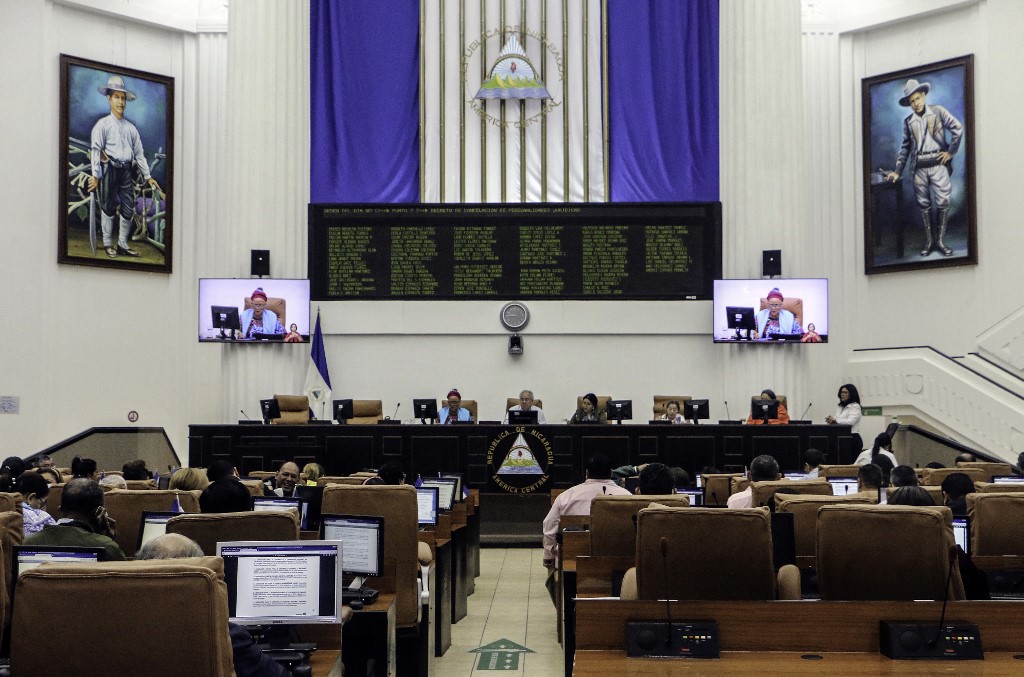Nicaragua’s congress outlawed 96 other NGOs on Thursday, bringing to 440 the number of corporations dissolved by Daniel Ortega’s government since the 2018 protests.
Various entities accused the government of reducing “the space for civil society”.
Among the entities sanctioned this Thursday is the Center for International Studies, which was directed by the president’s stepdaughter, Zoilamerica Ortega Murillo, in exile and who accused the president of sexual abuse, in 1998.
Also, several organizations, including business, scientific and technical ones, were dissolved with the vote of 75 of the 91 deputies, for not registering as foreign agents as required by a controversial law approved in 2020, informed the legislature.
The Ministry of the Interior (Migob), which regulates NGOs, accuses them of having “transgressed and failed to comply with their obligations” and “hindered the control and surveillance” carried out on them.
Since 2018, 440 NGOs have been canceled by the government in the context of the political crisis that the country is experiencing as a result of the social protests that broke out that year, which left 355 dead and thousands of exiles, according to the Inter-American Commission on Human Rights IACHR.
Sandinista congressman Filiberto Rodríguez, who introduced the bill to close down NGOs, announced that the illegalizations will continue.
The government accuses these groups of using the resources they receive from abroad to destabilize the country with the support of the United States.
Ortega, 76 years old and in government since 2007, won a fourth consecutive term in the November elections, with his rivals imprisoned.
The Nicaraguan Center for Human Rights (Cenidh) described the measure as “a crime” which, in addition to violating freedom of association, “disrupts the individual level” by affecting the beneficiaries of NGO action.
“How many people are being thrown into unemployment, hunger, the informal sector of the economy (…) what will all those people do now?” questioned the Cenidh, outlawed in 2018.
Meanwhile, the Office of the United Nations High Commissioner for Human Rights (OHCHR), said that “legal personality gives a civil society organization (CSO) the very possibility of existing”.
For its part, the Observatory for the Protection of Human Rights Defenders (FIDH-OMCT), considered the illegalization of NGOs as an “attack on civil society” and warned that it has the objective of “eliminating all possible social and political vision” contrary to the government, it said in a communiqué.
The human rights organization “urges the Nicaraguan authorities to revoke this decision and to guarantee, in all circumstances, the right to freedom of association,” FIDH said.






